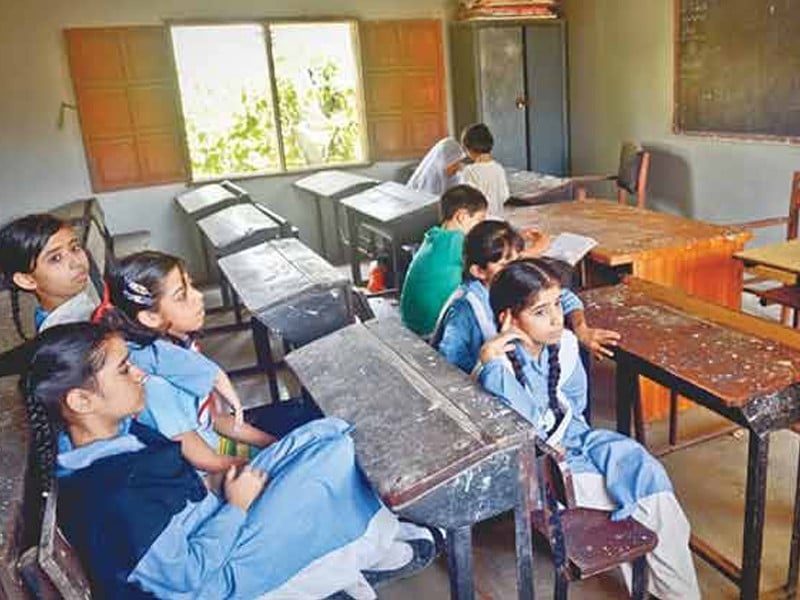Sindh education system is characterized by severe gaps and inefficiencies, with districts categorized as either medium, facing significant issues, or low, struggling to achieve adequate performance

By Saima Baloch
KARACHI: An investigation into the Sindh School Education Department has revealed a troubling case of 157 ghost employees, including teachers and other staff members, who have been residing abroad while continuing to draw their salaries. Following recommendations from the Federal Investigation Agency (FIA) and departmental inquiries, the Secretary of School Education has been advised to terminate these employees’ services within the next two days.
The Director General of Monitoring reported that evidence from the FIA shows 76 of these ghost employees had traveled abroad without proper leave authorization but continued to receive their salaries. The investigation has also highlighted the accountability of various education officials, including directors, District Education Officers (DEOs), and Tehsil Education Officers (TEOs), for their failure to report these absences. In a related development, a recent report by the Planning Commission, unveiled on August 24 by UK High Commissioner Jane Marriott and Planning Minister Ahsan Iqbal, sheds light on a severe crisis in Pakistan’s education system.
The District Education Performance Index Report 2023 highlights that Pakistan’s education delivery system is currently dysfunctional, with all 134 districts—excluding Islamabad—performing poorly across various indicators. The report underscores a significant human resource crisis, where individuals entering the job market are often inadequately educated. It notes that Khyber-Pakhtunkhwa (K-P) has outperformed Punjab in terms of governance and management of the education system, while Punjab leads in building educational infrastructure.
These findings reflect the contrasting priorities of the Pakistan Tehreek-e-Insaf (PTI) and Pakistan Muslim League-N (PML-N) governments. According to the report, Sindh education system is characterized by severe gaps and inefficiencies, with districts categorized as either medium, facing significant issues, or low, struggling to achieve adequate performance. The national average score of 53.46 places Pakistan in the low performance category. The report highlights systemic problems such as poor governance, inadequate learning outcomes, and insufficient public financing.
The report further reveals that 80 percent of out-of-school children have never attended school, and there is a prevalent perception of poor quality in public sector education. Rafiullah Kakar, Member Social Sector of the Planning Commission, criticized the allocation of the education budget, noting that up to 90 percent of it is directed towards salaries rather than improving educational quality. The highest score of 58.95 was achieved in the infrastructure and access domain, indicating some progress in expanding educational opportunities but underscoring the urgent need for comprehensive reforms to address the systemic issues plaguing Pakistan’s education sector.
-
- #JournalistMurder,
- #GhotkiJournalist,
- #MediaSafety,
- #PressFreedom,
- #JusticeForJournalists,
- #HumanRights,
- #SindhViolence,
- #GhotkiNews,
- #ProtectJournalists,



